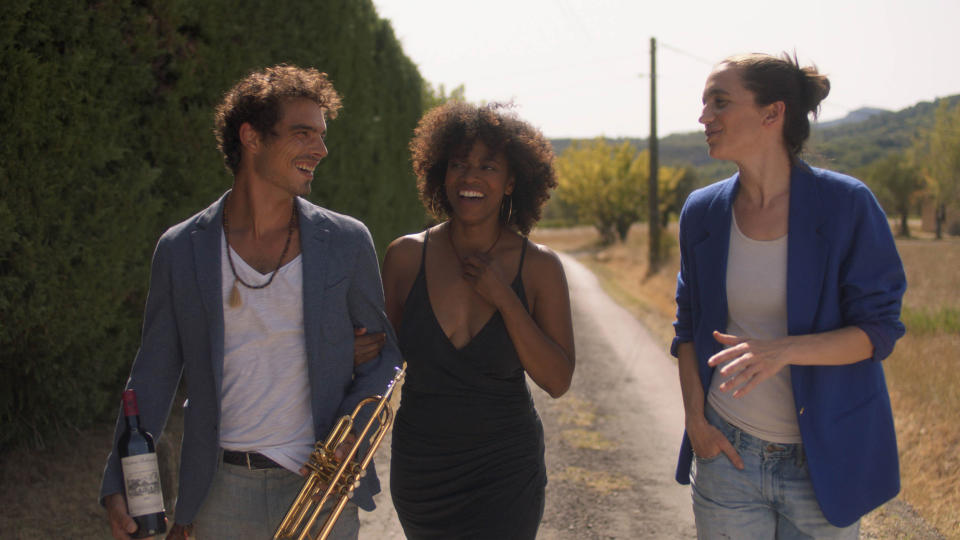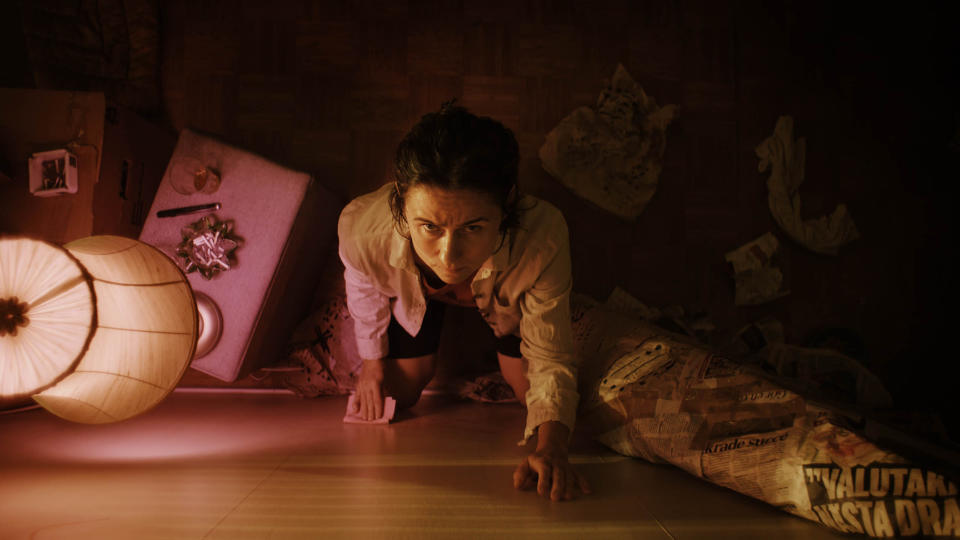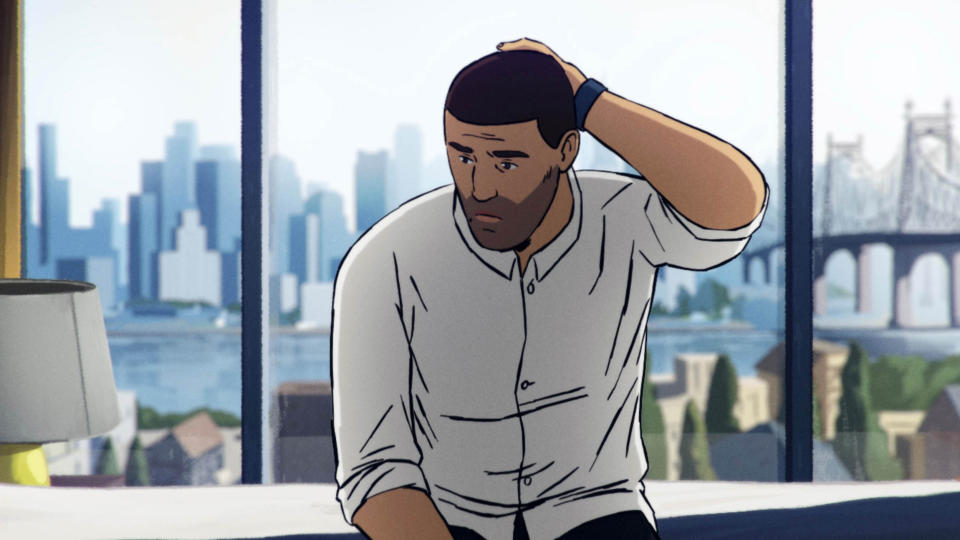Sundance goes virtual — but keeps the LGBTQ presence real
It has introduced the world to a cornucopia of queer movie classics, like "Hedwig and the Angry Inch," "Call Me By Your Name," "The Kids Are All Right," "Tangerine" and "God's Own Country" — but thus far, those introductions have been reserved for the industry insiders who could make their way to little Park City, Utah, for the annual Sundance Film Festival.
That all changes when Sundance 2021 opens Thursday, marking the first virtual edition of what's widely regarded as the most important American film festival.
Like most film festivals since the outbreak of the pandemic, Sundance has been forced to rethink and drastically retool itself this year. And even though its 2021 roster is somewhat smaller — 71 feature films, down from 118 last year — it will virtually expand far beyond its usual Park City base, screening to viewers across America over the festival's new digital platform. Special in-person screenings will also take place in 20 cities.

Even with its reduced seven-day lineup, Sundance will once again present a strong selection of eagerly anticipated LGBTQ-themed films, including the world premieres of documentaries about queer icons Pauli Murray and Alvin Ailey and adventurous queer stories about polyamory, secrecy and obsession.
"We don't really program with quotas or strong statement representations in mind — we have to respond to what artists are making and submitting," said Sundance's director of programming, Kim Yutani. "But I think a strong showing of both LGBTQ+ themes and creators who identify as LGBTQ+ feels important — allowing these voices to thrive and reach audiences has always been a key part of our mission."
Among those voices this year is New Orleans-based director Marion Hill, whose first feature, "Ma Belle, My Beauty," follows a group of queer characters from New Orleans to the south of France as they navigate jealousies within polyamory.

Also highly anticipated is "My Name is Pauli Murray," the follow-up project from the documentary team of Betsy West and Julie Cohen, who last brought us the Oscar-nominated 2018 documentary "RBG," about the late Supreme Court Justice Ruth Bader Ginsburg. This time, West and Cohen turn their attention to Black queer activist and lawyer Pauli Murray, who helped shape Ginsburg's decision in the landmark 1971 sex discrimination case Reed v. Reed.
Two other queer docs, "Ailey" and "Flee," use additional art forms to help profile their main characters. In the former, the biography of dance visionary Alvin Ailey is told partly through a dance inspired by his life, while in the latter, animation shields the identity of its main character, a closeted gay refugee from Afghanistan. "Flee" had been scheduled to premiere at last year's Cannes Film Festival before it was canceled because of the pandemic.
While it's not a queer story per se, "The Most Beautiful Boy in the World" is the powerful profile of Swedish actor Björn Andrésen, who at age 15 was chosen by Italian director Luchino Visconti to star as the object of obsession in his adaptation of Thomas Mann's homoerotic 1971 classic, "Death in Venice" — and has spent most of the rest of his life trying to live down the world's fantasies.
Another Swedish film, "Knocking," tells the spooky psychological tale of Molly, who moves to a new apartment in hope of recovering from a devastating accident, only to be haunted by cries for help from a neighbor whom apparently no one else can hear.

All films at Sundance 2021 will premiere at set times — watching can begin up to three hours after those times, but live Q&A sessions with filmmakers will begin directly after the timed screenings. Every film will also offer a separately ticketed 24-hour on-demand window, to start two days after its premiere.
Perhaps the greatest challenge for organizers given the virtual parameters of this year's festival has been preserving the strong community vibe that permeates its in-person Park City events. To compensate, several live-ish elements have been added to the streaming program — like "Weirdo Night," a filmed version of the Los Angeles underground queer performance spectacular of the same name, hosted by the legendary Dynasty Handbag.
"We've also created this ambitious New Frontier environment," Yutani said, "where audiences can meet and interact virtually via avatars and proximity audio and video chat."

Also going virtual at Sundance this year is Queer House, a joint presentation of the LGBTQ media advocacy group GLAAD and the Los Angeles-based LGBTQ film festival Outfest. Queer House made its physical debut just last year as an outgrowth of Outfest's longtime Queer Brunch gathering at Sundance, and this year it will present a slate of streaming panels and conversations, including a discussion about Queer Latinx representation in film and television led by GLAAD's director of Spanish-language and Latinx media programs, Monica Trasandes, and a conversation with the talent behind the lesbian frontier romance "The World to Come" (which also screens at the festival) led by Outfest's director of programming, Mike Dougherty. All Queer House events will be free and open to the public.
"The magic experienced being on the ground in Park City can't ever be completely replicated online, but we all know that this is only temporary," said Jeremy Blacklow, GLAAD's director of entertainment media. "Meanwhile, going virtual has given us the opportunity to reach LGBTQ people around the world who might not have considered ever attending Sundance in person, and the power of that can't be underestimated."
Yutani said: "Accessibility is a huge part of our mission. So it's been exciting to imagine how much broader an impact the work will have this year with so many people able to tune in."

